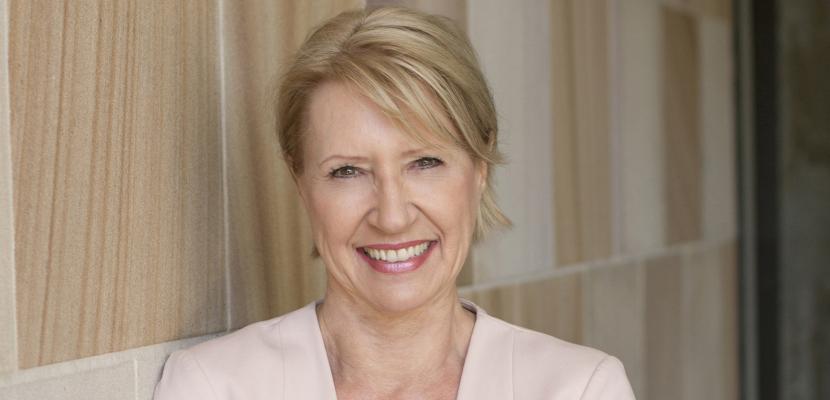
As told to Sally Coates, republished courtesy of the Gold Coast Bulletin
From a small-town country girl to now one of four executive deans at Bond University, this professor is impacting academic and social change.
I was born and raised in Bundaberg. My major memory growing up is that my mother and father always advocated for the power of education. It was very much around being enthusiastic about school, choir, learning a musical instrument, speech and drama. There was always a lot of emphasis on education.
I didn’t have ambitions to be a scientist or clinician but towards the end of secondary school I was deeply engaged with literature and theatre. But I also loved the sciences. So in high school it struck me that doing speech therapy – now speech pathology – would be a great way to have a career that blended both language and science. What I didn’t know then was that speech pathology is less about elocution and more about how language is processed in the brain, or the neuroscience of language.
So mine was a modest beginning, but in an environment that valued and encouraged curiosity.
After I graduated from University, I was pretty keen to get out and see the world as one does at the age of 21. I’m still astounded at how brave I was but I took on a role in Geelong as the only speech pathologist in a neurological rehabilitation hospital. It was a wonderful experience. I was out on a limb and had to work hard to establish a support network. That was the late ‘70s. After that I came to Brisbane to work as a speech pathologist in a hospital. I was already thinking “We really don’t know enough about how language is processed in the brain and what happens to language when the brain is damaged.” I enrolled in my masters part time to discover more and loved it.
Then a position came up at the University of Queensland as a full-time senior tutor. The lowest rung in the academic ladder. I actually took a significant decrease in pay to go back and continue my studies while also beginning my academic career. That was in 1984. I had found the place I wanted to be. Universities are wonderful, complicated, inspirational, humbling, and sometimes frustrating places. But they’re an environment that facilitates change and transformation.
After my masters I began my PhD and during that period I had my two wonderful children. And then with a large amount of self-effort and support from others, I progressed through the promotions process to professor. It was around 2004 that I moved out of my discipline of speech pathology and into a broader leadership role. I was the Associate Dean Academic in Health Sciences at UQ, then became Deputy Executive Dean (Academic). After eight years I moved sideways back into research, becoming the Director of a translational Deep Brain Stimulation research centre.
And then in 2014 came an unexpected but very attractive opportunity. I was perfectly happy and content, everything was laid out and then Bond appointed me to the position of Executive Dean of the Faculty of Health Sciences and Medicine. After 30 years at UQ it felt right. But what I was ambivalent about, was moving to the Gold Coast. Living in Brisbane I only ever read the troubling headlines. But I live on and love the GC. I think it’s the warmest, most connected and welcoming community.
I knew about gender inequity and wanted to do something about it when I was in my early 20s. The ‘70s and early 80’s was a tumultuous time around feminism and equal opportunity. There was this very clear understanding as I studied speech pathology that I’d work in a hospital, get married – hopefully to a doctor – and start a family. But then I had this amazing revelation: I don’t need to marry a doctor, I can be a doctor myself.
It’s pretty obvious when you look at the statistics that gender equity does not yet exist in the science, technology, engineering, mathematics and medicine (STEMM) disciplines in Australia. Recent data on gender representation in higher education in Australia shows that men and women in STEMM fields are equally represented at the academic entry point of Lecturer, but by Professorial level, 80 per cent are men and only 20 per cent are women. How can that be?
My colleague Professor Keitha Dunstan, who is the Pro Vice-Chancellor Academic at Bond and I are leading Bond’s participation in the Science in Australia Gender Equity (SAGE) project. I think what has happened for a long time is a recognition that gender equity is important, but despite that acknowledgment, women continue to be squeezed out of science careers by structural and cultural barriers. We all benefit by having diversity and difference in our workplaces. We have a chance to implement policies that will improve gender equity in STEMM fields in universities. And that is for the benefit of everyone.

